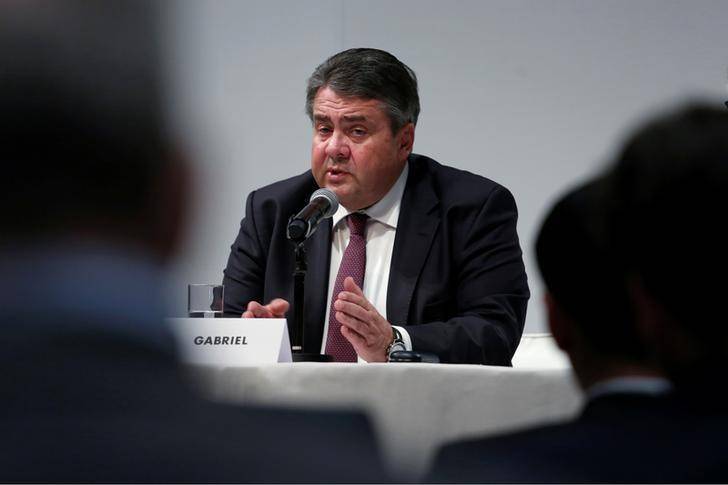BEIJING: Germany is getting an increasing number of complaints from its companies about a rise of protectionism in China, while Germany is keeping its door open to surging Chinese investment, the country's ambassador in Beijing told Reuters.
Germany and China have been involved in an increasingly public dispute about access to each others' markets, with China complaining about unfair scrutiny of its acquisition targets in Germany, and Germany wanting a more level playing-field for its firms in the world's second-largest economy.
German companies like Volkswagen AG and Siemens count China as among their most important overseas operations.
Economy Minister Sigmar Gabriel visited China last month where he made plain his concern about Beijing's trade policies.
"German companies here feel that there has been a considerable rise in protectionism. We are receiving more and more complaints, especially since the beginning of this year," said Germany's ambassador to China, Michael Clauss.
"When talking to them you get a sense that the overall mood has changed since last year, from being very optimistic to being more cautious."
Asked about protectionism worries, Chinese Foreign Ministry spokesman Geng Shuang said China would continue to open up and would continuously improve the investment environment for foreign companies.
"Foreign companies in China will continue to have great potential and space to develop. China's door is open and it won't be closed," Geng said.
FAIRNESS CONCERN
Claus said Chinese investments in Germany in the first half of this year had risen by about 2,000 percent from a year earlier.
"Most of this investment is going into the high-tech sector. It seems there is a strategic connection to 'Made in China 2025', they're trying to close the technological gap through acquisitions," Clauss said.
"And we're fine with China catching up and becoming a competitor in high-tech industries; it's the fairness of the competition we're concerned about."
Gabriel's trip came a week after his ministry withdrew approval for Fujian Grand Chip Investment Fund (FGC) to buy chip equipment maker Aixtron, citing new security concerns.
Germany is also scrutinizing the sale of Osram's general lighting lamps business Ledvance to a consortium of Chinese buyers.
"EU companies have bought up to 14 companies in China so far this year, and that amounts to 5 percent of what has been bought up by Chinese companies only in Germany this year," Clauss said.
The ambassador said he was also concerned about restrictions on public debate about protectionism in China.
"We sense a growing unwillingness to allow concerns about protectionism within China to be voiced in the media. This might have to do with problems in the economy," he said.
Germany has benefited from China's rapid expansion - its automakers, in particular, enjoy access to the world's largest car market. But they complain they are only allowed to manufacture cars domestically in China through joint ventures with local partners.
While Beijing has repeatedly pledged to increase market access for foreign firms, critics accuse it of not following through on its reform agenda and introducing new regulations that are restricting market access even further.






